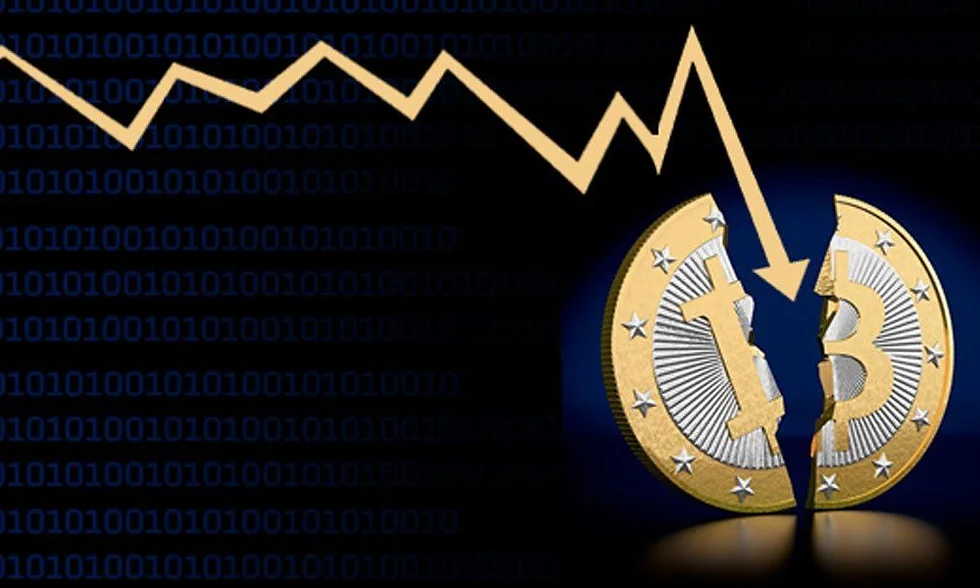In recent events, the geopolitical landscape has profoundly impacted the cryptocurrency market. Israel’s military actions against Iran have not only escalated tensions in the Middle East but have also led to significant fluctuations in cryptocurrency prices. As a blockchain expert, I aim to unpack the implications of these developments and analyze the current state of the market, particularly Bitcoin.
Understanding the Market Reaction
The immediate aftermath of Israel’s attack on Tehran witnessed Bitcoin (BTC) dropping below $66,000, a decline of approximately 2% within an hour and 3.3% over the course of the day. Similarly, Ethereum (ETH) also faced a downturn, losing over 3% and trading at around $2,420. The cryptocurrency market, often sensitive to global events, reacted predictably to this new wave of geopolitical uncertainty.
Notable Cryptocurrency Movements
Among the altcoins, Goatseus Maximus (GOAT) experienced the most significant hit, plummeting 6.7% to settle at $0.67. This dramatic decrease highlights the volatility that cryptocurrencies often exhibit in response to external shocks.
The overall cryptocurrency market capitalization fell by 3.27%, bringing it down to approximately $2.25 trillion. Such declines are not uncommon, especially when macroeconomic factors and geopolitical tensions collide.
Trading Volume and Liquidations
Within a 24-hour window, the market saw liquidations amounting to $313.16 million. This figure included $255.91 million in long positions and $57.24 million in short positions. These liquidations underscore the reactive nature of traders in a volatile market, often leading to rapid sell-offs and buy-ins based on real-time news updates.
Technical Analysis Insights
Despite the immediate price drops, technical analysis from platforms like TradingView suggests a nuanced picture. The market sentiment indicator remains at a “buy” level of 11, while moving averages show a strong buy signal at the same level. This indicates that while there is short-term pessimism due to geopolitical events, the long-term outlook might still retain bullish sentiments.
However, it is important to note that the market’s volatility has caused sentiment to shift from “neutral” to “sell,” reflecting the uncertainty that traders are grappling with.
The Impact of Geopolitical Events on Cryptocurrency
Historically, the cryptocurrency market has been susceptible to geopolitical events. Unlike traditional markets, cryptocurrencies are not bound by the same regulatory frameworks and often react more sharply to news that may impact global stability.
- Market Sentiment and Investor Behavior: Geopolitical tensions often lead to increased market volatility. Investors may panic sell in response to news that suggests potential instability, leading to cascading price drops.
- Safe Haven Assets: In times of crisis, investors typically gravitate towards traditional safe-haven assets like gold. However, cryptocurrencies are increasingly seen as alternative investments. As Bitcoin gains more mainstream adoption, its role as a potential safe haven could influence its price movements.
- Influence on Trading Strategies: Traders must adapt their strategies in response to geopolitical developments. For instance, those holding long positions may choose to liquidate to mitigate potential losses, while short-sellers may find new opportunities.
Future Outlook
As the situation in the Middle East continues to evolve, the cryptocurrency market will likely remain influenced by these events. Traders and investors should remain vigilant and informed about the implications of geopolitical events on their portfolios.
- Monitor Market Sentiment: Keep an eye on sentiment indicators and market analyses. As seen, despite immediate downturns, longer-term bullish trends can often re-emerge.
- Diversify Investments: It’s prudent for investors to diversify their holdings across various assets to hedge against volatility. This strategy can mitigate risks associated with sudden market movements.
- Stay Informed: Regularly check reliable news sources and market analyses to stay updated on geopolitical events and their potential impact on cryptocurrency prices.
The recent attack by Israel on Iran serves as a stark reminder of how intertwined global events are with cryptocurrency markets. While Bitcoin and other cryptocurrencies may currently be experiencing downward pressure, the long-term viability and adoption of these assets remain strong. As an investor or trader in the crypto space, understanding these dynamics is crucial for making informed decisions.
The cryptocurrency landscape is inherently volatile, and such geopolitical events will continue to shape market behaviors. By staying informed and adapting to changes, investors can navigate this complex environment more effectively.
As always, exercise caution and due diligence in your investment strategies. The crypto market presents both opportunities and risks, and understanding the broader context can help you make sound investment decisions.
Visit us at Coinls for more cryptocurrency information!

